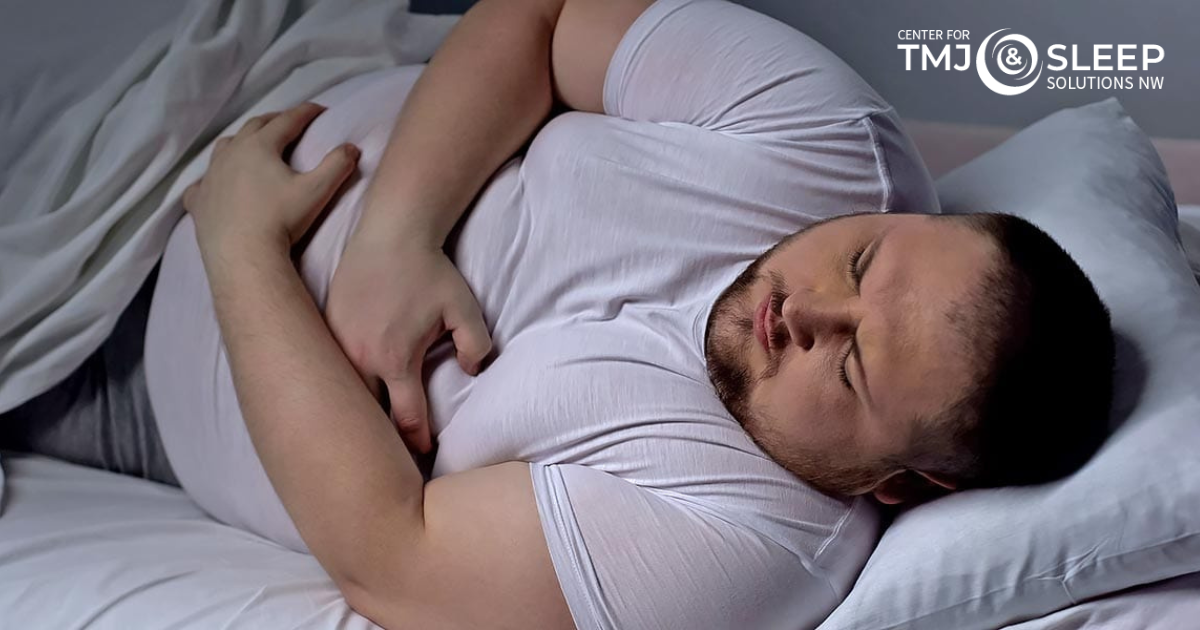
Sleep Your Way To A Healthy Weight!
Good sleep is often the missing link in a person’s healthcare routine. We tend to emphasize diet and exercise, but sleep rarely gets the attention it deserves. As sleep doctors, we understand the importance of consistent, quality rest and its effects on the human body. When a patient isn’t sleeping well because of obstructive sleep apnea or simply neglecting to prioritize sleep in their life, it opens the door to a host of health problems, and excess weight is one of them.
Why You Need Quality Sleep Every Single Night
There’s science behind the notion that quality sleep is vital to maintaining a healthy weight. Sleep quality influences the hormones that regulate appetite. These hormones become imbalanced when you’re not sleeping well, and you feel hungry more often throughout the day. You’ll also be more likely to overeat because your brain isn’t getting the signal that you’ve had enough. You may crave less nutritious foods or snack more often, both of which can add quite a few calories to your diet. And if you’re not exercising regularly — because you’re always tired from lack of sleep — it’s much harder to keep extra weight off.
Psychologically speaking, getting good sleep leads to a healthier lifestyle for two basic reasons:
- Energy: Sleep recharges your entire body. When you’re tired all the time, you’ll be less motivated to cook a healthy meal at home, drink enough water, head to the gym, or go for a walk. You might turn to fast food and sweets for comfort or convenience and gravitate toward activities that don’t require a lot of energy.
- Mental clarity: Your brain needs rest at regular intervals for optimal function. If you’re not sleeping and giving your brain the opportunity to reset, you’ll be less likely to make good decisions that contribute to a healthy lifestyle and more likely to interrupt habits you’ve spent time and effort developing.
How to Get Better Sleep
To gain more control over your health, consider changing your sleep habits. We recommend avoiding caffeine and alcohol, which can disrupt sleep even hours after you’ve consumed them. Furthermore, it’s best to keep all electronic devices, including the TV, out of the bedroom. The blue light that modern electronics emit makes it harder to fall asleep. Instead, block out as much light and noise as possible to promote a peaceful sleeping environment. It’s also important to keep a regular sleep schedule because your body likes routine. Do your best to go to bed at the same time every night and wake up at the same time every morning, even on the weekends.
Stay on Track With Treatment
Perhaps the most important thing you can do for yourself is to stick to your sleep apnea treatment plan. If you have an oral appliance or CPAP, use it as directed. These devices are crucial for getting quality sleep every night and reducing the adverse health effects associated with obstructive sleep apnea.
We want all our patients to lead healthy lives, and we’re here to provide advice on getting good sleep, especially if you have sleep apnea. If you suspect you have sleep apnea but haven’t been diagnosed or have questions about your current treatment, call Center for TMJ & Sleep Solutions NW, located in Bellevue, Silverdale, and Federal Way, WA.










